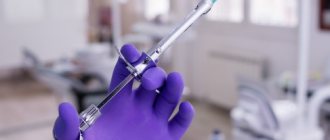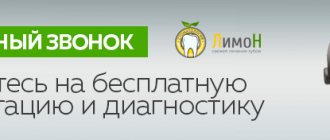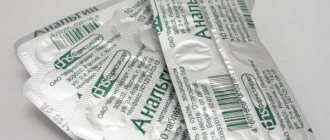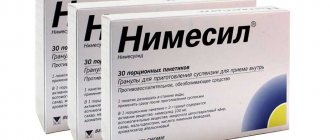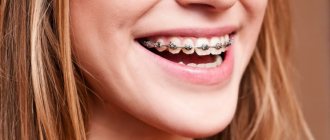What painkillers can you take while breastfeeding?
When breastfeeding, it is safe to take the following painkillers: Paracetamol, Ibuprofen, Drotaverine (“No-shpa”), Ketorolac (“Ketorol”, “Ketanov”, “Ketalgin”). Injections of lidocaine or articaine are suitable for pain relief during dental treatment. For local anesthesia for bruises and some other injuries, you can use ointments based on diclofenac.
| Allowed | Prohibited |
| Paracetamol | Metamizole sodium (Analgin) |
| Ibuprofen | Nimesulide (“Nimesil”, “Nise”) |
| Drotaverine ("No-shpa") | Acetylsalicylic acid (“Citramon”, “Aspirin”) |
| Ketorolac (“Ketorol”, “Ketanov”, “Ketalgin”) |
Should you breastfeed if you have nipple pain?
Unless your doctor advises otherwise, try to maintain your normal breastfeeding routine despite nipple pain. Interruptions or cessation of feedings may result in decreased milk production.
You can use a breast pump until your nipples become less painful, sometimes causing less irritation to your nipple skin.
Even if you have a breast infection like mastitis, you should continue to breastfeed. In addition, with mastitis, pain in the breasts and nipples even increases when breastfeeding or pumping stops.
In the same way, you should continue breastfeeding if you have thrush, unless your doctor recommends otherwise.
Terms of use
Dr. Komarovsky, for example, recommends avoiding the use of painkillers while breastfeeding or pregnant, as some drugs simply have not undergone proper clinical studies. However, if a woman cannot tolerate severe pain, there is no point in waiting for it to go away on its own or using dubious traditional methods. Here are a few rules that will help you quickly deal with the problem and avoid harming yourself and your child:
- It is important to understand: painkillers only relieve the symptom, but do not cure the disease itself. Therefore, in case of painful discomfort, it is recommended to consult a doctor, find the cause of the discomfort and eliminate it. So, if you have a toothache, visit the dentist; if you have pain in your ear, visit an ENT doctor. If the root cause is not eliminated, the pain will occur again and again, requiring another dose of medication.
- Even for a drug prescribed by a doctor, check the instructions, or rather the section “Use during pregnancy and breastfeeding.” There are no prohibitions - take it, and in the recommended dosage. But! The quantitative transfer of drugs into mother's milk has been studied only for a few drugs. Therefore, in most cases, you will see that the drug has not been studied during pregnancy and lactation, or pregnancy and lactation are contraindications for use (precisely due to the lack of studies on this group). Some mothers try to reduce the harm of drugs by reducing the dose. It is not recommended to do this; the expected effect will not happen (especially if we are talking about products that are acceptable during breastfeeding!).
- Look in the instructions for an indicator that is important for us - the drug elimination period. As a rule, it is the same for blood plasma and breast milk. This way you can calculate the period when the drug leaves your body. Analgesics penetrate into the blood and into mother's milk at the same time: this requires only half an hour, the maximum concentration occurs after 1–1.5 hours. And they appear longer – up to 2–7. The half-life of paracetamol, for example, is about 3, and acetylsalicylic acid - up to 7.
Why do my nipples hurt when feeding?
Common causes of nipple pain:
- Your nipples are getting used to it.
During the first few weeks of breastfeeding, your nipples may feel sore because, like your breasts, they are adapting to the feeding process. These unpleasant sensations usually go away when you and your baby get better at feeding.
- Incorrect nipple latching.
If your baby doesn't grasp the nipple correctly when feeding, it can cause discomfort due to the baby's mouth rubbing against the skin.
- Milk callus.
This is a painful white area on or around the nipple. It is thickened milk or skin that has grown over the milk duct. The milk cannot leave the duct and accumulates under the skin, forming a callus.
- Corn.
Unlike breast milk, a regular callus on the nipple is formed due to improper grip, poorly selected pad, or friction of the breast pump against the skin.
- Short bridle.
If your baby's tongue doesn't reach his bottom lip when he cries, or if his tongue is shaped like a heart, he may have a frenulum tie. Due to a short frenulum, the baby is unable to latch onto the breast normally, which can cause mother’s nipples to hurt.
- Flat or depressed nipples.
If, when you squeeze the areola (the pigmented area around the nipple) about 2-2.5 centimeters behind the nipple, the nipple does not harden and begin to “stick out,” you may have flat nipples. And if, during the same check, the nipple goes inward, then it is considered depressed. The child cannot grasp such nipples normally, and this causes pain in the mother.
- When you wean your baby and he continues to suck.
Not only is this painful, but it can also damage breast tissue and the nipple.
- Tight bra.
A tight bra puts pressure on the nipple and irritates the skin.
- Detergents and fragrances.
Some products and fragrances dry out the skin of the nipples and cause irritation. This reaction also happens to washing powder.
- Vasospasm.
After breastfeeding, sometimes mothers experience pain that radiates from the nipple to the mammary gland. This occurs due to narrowing of the blood vessels in the breast (vasospasm).
- Mastitis.
This is an infectious disease of the breast. It develops when milk cannot leave the mammary gland normally because the milk duct is clogged. Milk accumulates, causing pain and swelling of the breast and nipple. Symptoms of mastitis also include red stripes on the chest, flu-like symptoms such as high fever and pain in the joints and limbs, and lumps in the chest.
- Thrush.
This is an infectious fungal disease that affects the nipples and causes pain in them. If your child has white or yellowish spots on the mucous membranes of his mouth or lips, or cracked skin at the corners of his lips, he may have thrush. Symptoms of thrush in a nursing mother: cracked nipples, stabbing pain in the breasts during or after feeding, itching or burning in the nipples, severe redness of the nipples, shiny or scaly skin of the nipples.
Dental treatment
Some young mothers are afraid to go for dental treatment because they read somewhere that anesthesia can have a bad effect on the quality of breast milk. In reality, this is not so: the doctor gives a local injection, which has a short-term effect and is quickly eliminated from the body, and therefore does not cause any harm to the baby’s health? As stated in the online magazine “Doctor Zubov”. So it is possible and necessary to treat teeth with pain relief during lactation. It is better to clarify in advance which drug will be administered to you, and inform the dentist about breastfeeding. In this case, the doctor will select the optimal remedy that will not only provide excellent pain relief during dental treatment, but will also be eliminated from the body as quickly as possible.
Treatment of pain during menstruation
Pain is considered severe if it interferes with your daily activities, and such pain affects about 10% of women and is called dysmenorrhea. Remember, this is a serious symptom that is common to many conditions, including endometriosis or fibrosis, which means consulting a doctor is required.
Below are some ways to relieve period pain:
Regular physical activity and generally staying physically fit can reduce period pain. Pain relievers that reduce the effects of prostaglandins may help with menstrual pain. These painkillers include non-steroidal anti-inflammatory drugs (NSAIDs for short). Relaxation techniques, bed rest and simple measures such as applying heat to the lower abdomen (in the form of a warm water bottle or heating pad) can be very effective.
List of approved drugs
Now a woman can turn to the Internet for help: just enter the appropriate name of the medicine into a search engine, and several sites will tell you whether it is allowed to be taken during pregnancy or lactation. For example, there is a universal reference book e-lactation. If we talk about painkillers, which are usually used for severe headaches and toothaches, as well as during extremely painful periods, here is a complete list of tablets that you can take, as well as intramuscular, external and rectal agents:
- Preparations containing paracetamol reduce temperature and pain, and also help to subside inflammatory processes. The main part leaves the body a couple of hours after administration.
- Ibuprofen-based drugs work for toothache, discomfort in joints and muscles. Suppositories and tablets relieve fever and help cope with the symptoms of ARVI. When using medications, less than one percent of the active substance gets into the milk - this is completely safe for the baby.
- Of the antispasmodics, that is, drugs that relax smooth muscles and relieve spasms, no-spa is allowed during breastfeeding. The drug eliminates discomfort in the intestines and can be used for stomach cramps or renal colic.
- If a nursing mother needs to treat caries or remove a tooth, injections of ultracaine or lidocaine can be used to anesthetize these processes. They quickly provide an analgesic effect and are then just as quickly eliminated from the body.
- In case of particularly severe pain syndrome, it is allowed to take “Ketorol” (also known under the names “Ketanov” and “Ketalgin”). This non-steroidal anti-inflammatory drug quickly provides pain relief. Used for migraines and menstrual pain. Two hours after administration it passes into breast milk, but its concentration is so low that even American and European doctors allow Ketorol to be taken by nursing mothers.
- Diclofenac. If the pain appears as a result of a bruise, sprain or other “sports” injury, doctors suggest using special anti-inflammatory pain-relieving ointments. The substance does not affect the quality and quantity of milk in any way and is quickly eliminated from the body. Diclofenac is contraindicated in people with high blood pressure or peptic ulcers.
Antidepressants, tranquilizers, sleeping pills
The need to take these medications may be due to postpartum depression. Almost all of them pass into breast milk and affect the behavior of children. Remember that early weaning of a baby can increase depression, as the hormones produced during lactation, which have a calming effect on the mother, will disappear. Phenobarbital, codeine phosphate and caffeine pass into breast milk. Phenobarbital may cause central nervous system depression in the newborn. Caffeine will “add” regurgitation, agitation and poor sleep; it can cause depression of the central nervous system in the child, and also interferes with the flow of milk into the mammary ducts. Thus, any drugs containing these components should not be used independently during breastfeeding.
Prohibited drugs
All of these pills are almost certainly in your medicine cabinet. But they are strictly prohibited for women who are breastfeeding. This list included:
- Analgin. In most countries, this drug is generally prohibited for use (not only by nursing women), as it contains a substance that provokes the development of agranulocytosis. If it gets into breast milk, it has an extremely negative effect on the functioning of the baby’s kidneys and circulatory system. Analgin is part of Baralgin, Tempalgin, Spazmalgon, Pentalgin, Spazgan. Approved for use only in the most extreme cases, at high temperatures that are not affected by other medications. Then an intramuscular injection of analgin with diphenhydramine and papaverine is given. However, only a doctor can prescribe such radical methods!
- "Nimesil" ("Nise", "Nimid" and other drugs based on nimesulide). Has an almost instant pain relieving effect. But due to the lack of a sufficient number of clinical studies, it is prohibited for use by pregnant and lactating women, as well as children under 12 years of age.
- Acetylsalicylic acid (aspirin and citramone). It negatively affects the functioning of the gastrointestinal tract of the baby and contributes to disruption of the kidneys and hematopoietic system.



